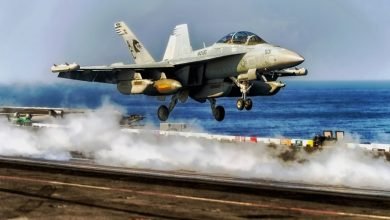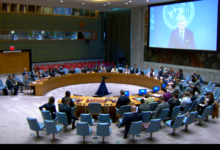Iran’s New Ambassador to Sana’a Signals Prolonged War in Yemen

Iran’s announcement of the arrival of its ambassador in Yemen’s Houthi-held capital, Sanaa, has shocked many Yemenis. It has provoked a myriad of questions and sparked new doubts about the Saudi-led coalition’s role and intentions in Yemen.
Six years of war and blockade on Yemen have created dire humanitarian conditions, instability, and fragmentation. One of the most taxing matters Yemenis have dealt with is the difficulty in travelling abroad or returning home. The airports and ports have been under the control of the Saudi-UAE led coalition, which is fighting the Iran-backed Houthis in Yemen. The alleged purpose of controlling Yemen’s airports and ports is to prevent the smuggling of weapons to the Houthis.
When a flight is bound for or out of Yemen, the names of all passengers must be given to the coalition in advance. Without the go-ahead from the coalition, a Yemeni national is not able to board the plane. Iran’s announcement of the arrival of its ambassador in Sanaa has shocked many Yemenis and made them wonder why the coalition could not stop Iran’s diplomat from setting foot on Yemen’s soil. This development has provoked many speculations and sparked additional doubts about the coalition’s role and intentions in Yemen.

On October 17, Iran’s foreign ministry declared that a new Iranian envoy arrived in the Houthi-held capital. “Hassan Irloo … Ambassador for the Islamic Republic of Iran in Yemen, has arrived in Sanaa,” Fars news agency reported in a quote from the foreign ministry’s spokesperson. Already in September 2019, the Houthis had also appointed Ibrahim al-Dailami as the Plenipotentiary and Extraordinary Ambassador of Yemen to Tehran.

Iran’s representative, Hassan Irloo, (left) with the Houthis’ self-proclaimed Foreign Minister Hesham Sharaf Abdallah, in Sanaa, Yemen on Oct. 27, 2020. (Photo via Arab News)
In view of Iran’s success in sending its envoy to Yemen, two explanations can be derived. The first is that the Saudi-led coalition overlooked Iran’s preparation for sending an ambassador to Yemen intentionally. The coalition would have been capable of fending off such development, but it did not want to. Its intention could simply be to prolong the war in Yemen and weaken the legitimate, internationally recognized Yemeni government further.
Indeed, the coalition, mainly headed by the UAE and Saudi Arabia, has repeatedly undermined the Yemeni government in the south, leading to its total banishment, including the prime minister and the president. At present, the government lives in exile in Saudi Arabia while the Houthis remain the ruler of Yemen’s north.
The coalition, mainly headed by the UAE and Saudi Arabia, has repeatedly undermined the Yemeni government in the south, leading to its total banishment.
After six years of a Saudi war ostensibly against Iran in Yemen, Iran defiantly sent its envoy to Sanaa provoking a state of euphoria among the Houthis. Yemeni allies in Tehran now are powerful and dominant while Yemen’s Saudi allies are dispersed and expatriated. This reality has dashed any hopes that Saudi Arabia would be reinstating the government in Yemen’s north or south.
For Saudi Arabia to restore the Yemeni government to power, it must first genuinely recognize its legitimacy by allowing it to return to Houthi-free areas and giving it room to run these territories without much interference unless invited. Otherwise, the coalition is only using the Yemeni government to perpetuate its ruinous policies in the country with the intention of taking over strategic coastal lines or islands as the UAE has been doing in Yemen’s south.
The second explanation for the arrival of Iran’s ambassador in Yemen is that Saudi Arabia has failed to uncover and foil the transfer of the Iranian diplomat to war-torn Yemen. This is indicative of other failures regarding the prevention of smuggling activities which largely feed the Houthis with the weapons needed to keep the war going.
But pinning blame on smuggling cannot save face. Whether Saudi Arabia turned a blind eye to Irloo’s travel to Sanaa or it did not detect his movement, it would not be good for Riyadh’s reputation and status, particularly among anti-Iran Yemenis and Arabs.
Houthi-appointed Minister of Foreign Affairs, Hisham Sharaf, said the arrival of the Iranian ambassador in Sanaa was a prologue to the return of a number of foreign ambassadors.
As expected, the Houthis welcomed the arrival of the Iranian envoy, and the Houthi-appointed Minister of Foreign Affairs, Hisham Sharaf, said the arrival of the Iranian ambassador in Sanaa was a prologue to the return of a number of foreign ambassadors in the near future. The exiled Yemeni government condemned it, stating the arrival violated international conventions.
The government has submitted a formal complaint to the United Nations’ Security Council, calling the matter “a breach of international obligations.” The statement stipulated that the arrival of the Iranian ambassador in Yemen “constitutes dangerous precedents that affect the essence of the rights of members states of the United Nations and allows rogue states and regime to enable rebels to violate state sovereignty.” Yet, this rhetoric will not deter Iran from cementing its partnership with the Houthis.
Although the United States expressed its disapproval of Irloo’s arrival in Yemen, nothing seems to be able to weaken the bond between Iran and Houthis. Morgan Ortagus, the US Department of State spokesperson, tweeted: “The Iranian regime smuggled Hassan Irloo, an IRGC member tied to Lebanese Hizballah, into Yemen under the guise of ‘Ambassador’ to the Houthi militia. Iran’s intent to use the Houthis to expand its malign influence is clear. The Yemeni people should say no to Irloo and Iran.”
Regardless of any statements or stances on the arrival of Iran’s ambassador to Yemen, this development indicates that the conflict in Yemen is nowhere near an end. It is a reminder that Iran is deepening its role in Yemen while Saudi Arabia seems to prefer the continuation of a nation split between militias rather than a united, stable, and sovereign Yemen.
Iran is deepening its role in Yemen while Saudi Arabia seems to prefer the continuation of a nation split between militias.
When Iraq plunged into an unimaginable abyss in 2003, Saudi Arabia was not affected though the two countries share borders. The Kingdom has remained stable and wealthy while Iraq has been locked in perennial chaos. Now, it appears the Saudi approach is the same regarding Yemen. Even if Yemen remains at war and Iran intensifies its presence in the country, the Saudi leadership seems to think that their country will not become unsafe or destabilized.
Thus far, the recurring Houthi missiles and drones striking Saudi territories have not been enough to push the Saudi leadership to think about the danger the Houthis pose. Saudi Arabia considers the Iran-allied Houthis an enemy and a terrorist group, yet it views their presence as an opportunity to keep Yemen a divided and fragile country. The arrival of Iran’s new ambassador in Sanaa is another justification for the prolonged war even as the Yemeni people continue to suffer endlessly.







